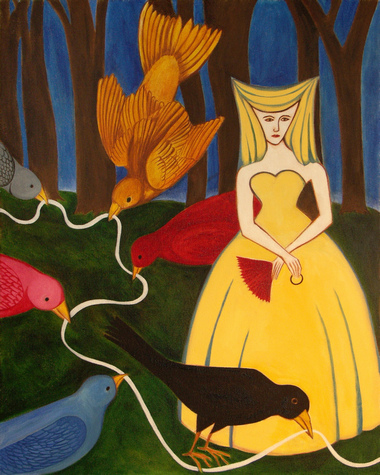Scapegoat Review is interested in poems that challenge the norm. We have an exciting group of poems from an interesting group of poets. This month we come to you with our biggest issue yet. It is an eclectic issue with poetry, art, a cinepoem, and a book review on Froth, by Polish poet Jaroslaw Mikolajewski, translated by Piotr Florczyk (published by Calypso Editions).
 Scapegoat Review strives to give you an expansive range of craft that challenges the norm. The result is an assorted collection of work we love and hope you will enjoy. The collection is a potpourri including the grounded, the surreal, ethereal, and work we think pushes the envelope so that you may to consider beyond the words on the page or the image in front of you.
Scapegoat Review strives to give you an expansive range of craft that challenges the norm. The result is an assorted collection of work we love and hope you will enjoy. The collection is a potpourri including the grounded, the surreal, ethereal, and work we think pushes the envelope so that you may to consider beyond the words on the page or the image in front of you.
Craft is objective, of course, but solid work is something most can agree upon. Froth, by Jaroslaw Mikolajewski, is such a work. It is poetry at its finest. While he has 10 volumes of poetry that have been translated into several languages, this is the first work to be translated into English. His writing brings to mind various Polish poets such as Wisława Szymborska, Anna Swir, and Czesław Miłosz, yet his voice is all his own.
Here are a few excerpts from the book review written by Jillian Mukavetz:
In this exposing blueprint we whisper in quotidian terms, in transcendence, and intimacy the masculine as it embodies the complexities of father, of lover, and husband. The love between the husband and wife stays complicit regardless of the transformation. How is immortality here outside of earth placed into family? It is in the exigency that we celebrate in the seconds of everyday life; in humor, in times of grandeur and the destitute grappling of placing a ponytail into a hair tie…
Self-alienation occurs when the speaker jumps into linear yet nonlinear juxtaposition. The place of self is disembodied if not only for a number, or letter, eluding, “my step – does it let you sleep and this letter.” When we begin the speaker can only physically internalize his dead father who is cast as hero; inhaling his captured breath in the plastic ribs of a regularly used air mattress.
For more on Froth, go to: http://scapegoatreview.com and to http://www.calypsoeditions.org/froth
Here are a few lines from some of the poets in this issue:
Dream
Anthony Cappo
I had my own Frankenstein monster he’d been
dormant I unwrapped him expecting him to lie
still but I went away for a minute and he slid under my bed
I coaxed him out I’d been reading this book
about how preemies are massaged by nurses’ aides…
To Watch Her Lips
Yvonne Strumecki
She prefers reds,
both in wine and lips,
the cherried variations
staining my thoughts, …
Night Blossom
Alexandra Smyth
In the backseat of the car I bloom into witness.
Part of me knows this is slaughter. I watched
smoke emit from my skin as I fixed my hair in
the mirror while I waited in the foyer for you to
pick me up.
We’ve got monsters, desire, sex, and regret. All the things, which make for absorbing reading. We have a wealth of work to share with you and hope you enjoy as much as we have.

